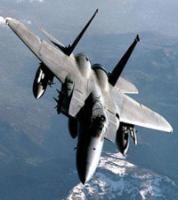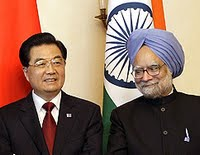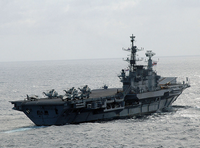
A study by the Congressional Research Service (CRS) found that U.S. arms sales surged last year, despite the worst global economic downturn in decades. (UPDATE: WPR subscribers can download the CRS report here.) In 2008, U.S. arms dealers signed new weapons contracts worth approximately $37.8 billion, a considerable increase from previous years. The surge was remarkable given that the total volume of new arms orders in 2008, $55.2 billion, was billions of dollars below the comparable figures for 2007 and 2006. The United States also fortified its position as the leading arms-exporting country. Last year, the volume of global defense […]




